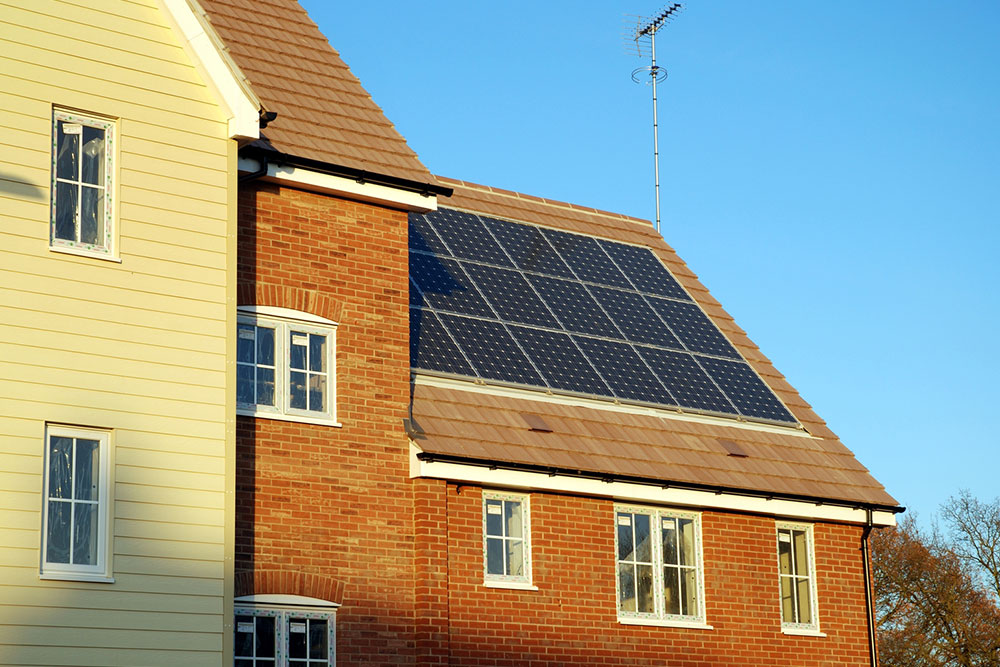Key Things to Know About Solar Energy Systems for Homes
The need to switch to a sustainable energy source has significantly increased in the last few years. Because of this, many companies and households are installing solar energy systems for electricity generation. With the right system, one can not only positively impact the environment but also reduce energy expenses by a huge margin.

Solar energy systems
To reduce the use of fossil fuels to generate electricity, the world has been using several renewable energy sources, such as solar and hydroenergy. A solar energy system uses one of the most abundant resources available—sunlight—to produce electricity. The system’s solar panels contain photovoltaic (or PV) cells that directly convert sunlight into electrical energy. This energy can then be stored and used to power the appliances in a house.
Types of solar panels
There are several types of solar panels that one can choose from to install in their homes for solar energy. The panels are mainly categorised based on their material or appearance.
1. Monocrystalline panels
These types of solar panels comprise solar cells that are made with a single crystal of high-quality silicon. One of the biggest advantages of monocrystalline solar panels is that they are highly energy efficient, offering around 18% to 24% energy efficiency. Plus, monocrystalline solar panels have an aesthetically pleasing colour and appearance since they are made from single-crystal silicon treated with an anti-reflective coating. But owing to their benefits, these solar panels are also among the most expensive choices. A square meter of a 350-watt monocrystalline panel costs somewhere between £250 and £400.
2. Polycrystalline panels
Unlike monocrystalline panels, polycrystalline solar panels are made from multiple silicon crystals. Due to this, they are also less efficient than the former, with an average efficiency rating of around 13% to 17%. But this means that polycrystalline panels are still a lot more efficient than some other types of panels. Because of their lower efficiency, these solar panels are slightly more affordable than monocrystalline panels. A square meter of a 350-watt polycrystalline panel would cost around £225 to £250.
3. Thin film panels
These types of solar panels are made by placing multiple layers of thin and flexible photovoltaic materials on top of each other. These materials may include amorphous silicon, cadmium telluride, and organic PV cells. The energy efficiency of thin film solar panels can depend on the type of materials used. But on average, their efficiency rating usually lies somewhere between 7% and 13%. These panels are mainly preferred for their flexibility and are ideal for houses with limited space for installation. Due to their easy mobility, thin film solar panels can also be used for mobile homes and RVs. The cost of a square meter of a 350-watt thin film solar panel ranges from around £200 to £250.
4. Transparent panels
As their name suggests, these solar panels are see-through and available in various transparency levels. The main advantage of transparent solar panels is that they can be placed on glass windows without blocking the flow of sunlight. Although these solar panels are available for households, they are mostly used by commercial buildings with glass windows. The main reason for this is that they have a fairly low efficiency rating — between 1% and 10%, which is not practical for homes. Also, these solar panels cost a lot, with a square meter of a 350-watt panel priced at £250 on average.
5. Solar tiles
Individuals who do not find the look of solar panels appealing for their houses can get solar tiles installed. These are essentially solar cells designed to look like roof tiles so they can easily blend in with the house. The solar tile system has an energy efficiency rating of 10% to 20%. They are also somewhat expensive, as a square meter of 350-watt solar tiles costs around £300 on average.
6. Solar thermal panels
Unlike traditional solar panels, solar thermal panels are not used to generate electricity. Rather, the main function of these panels is to use sunlight to heat water. These systems can effectively replace conventional water heating systems of a house, helping one save on heating bills. Solar thermal panels have an efficiency rating of around 70% and cost somewhere around £670 for a 3-bedroom household. One may have to pay quite a bit for its installation, but that would be a one-time cost.
Top solar energy companies to consider for homes
1. HomeSun
With a goal of providing sustainable energy sources for all homes, HomeSun has been a leader in offering affordable solar energy. It works with a subscription model, offering solar-powered electricity to residents without them having to install their own solar system.
2. Diamond Green Energy
This family-run business offers solar panels, inverters, and installation services for various home systems.
3. Effective Home
Along with solar panels, Effective Home provides energy storage systems and energy-efficient heating equipment for homes.
4. Solar Fast
With a complete focus on solar energy, Solar Fast sells solar energy systems for both residential and commercial spaces.











